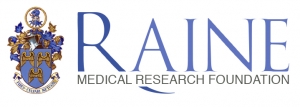Dr Lee Nedkoff
Extending the potential of linked health data for international studies of cardiovascular disease: An Australia/New Zealand collaboration
Dr Lee Nedkoff from the School of Population and Global Health, The University of Western Australia, was awarded a 2019 Healy Research Collaboration Award.
Dr Lee Nedkoff is a Research Fellow and cardiovascular epidemiologist in the School of Population and Global Health at The University of Western Australia.
Dr Nedkoff’s research seeks to understand the epidemiology of cardiovascular disease to support effective implementation of prevention and disease management programs in Australia.
Cardiovascular disease is the leading cause of death in both Australia and New Zealand. While efforts to reduce major risk factors such as smoking, high cholesterol and blood pressure have led to substantial declines in cardiovascular mortality, the challenge remains to identify specific targets where further gains can be made, which can then inform clinical practice and health policy.
This Healy Research Collaboration Award supported a collaboration between Dr Nedkoff and epidemiologists at the University of Auckland in New Zealand. Collaborative activities have included travel (where possible, given the impact of COVID-19) and online meetings to progress their research program. Together, they have investigated methodologies for defining rates of early deaths following heart attacks in both Australia and New Zealand. They observed that approximately half of deaths from heart attack occur in people who have not been admitted to hospital, indicating that current methods for measuring these events need refining.
Linked electronic health data is a pragmatic means of investigating cardiovascular disease burden, whereby integrated electronic records assist health monitoring and interventions. The linked health data system in WA has been at the forefront nationally, with linked state-wide data since the mid 1990’s. In New Zealand, the presence of a unique personal health identifier allows for nation-wide linkage of health datasets, resulting in there being a wider availability of linked datasets than in Australia. Through this collaboration, Dr Nedkoff was able to compare administrative cardiovascular coding practices between Australia and New Zealand, and test a New Zealand developed cardiovascular risk score on Australian data.
Since completing this Research Collaboration Award, Dr Nedkoff has been successful in receiving a National Heart Foundation Future Leader Fellowship, a four year program of support that will assist her to build on the work of this Collaboration Award, to further develop this new coding algorithm for monitoring heart attacks and cardiovascular disease in Australia. Dr Nedkoff is currently working with the Australian Institute of Health and Welfare in sharing her research findings, to inform national monitoring practices of heart attacks and strokes in Australia in efforts to improve outcomes for patients with cardiovascular disease.

